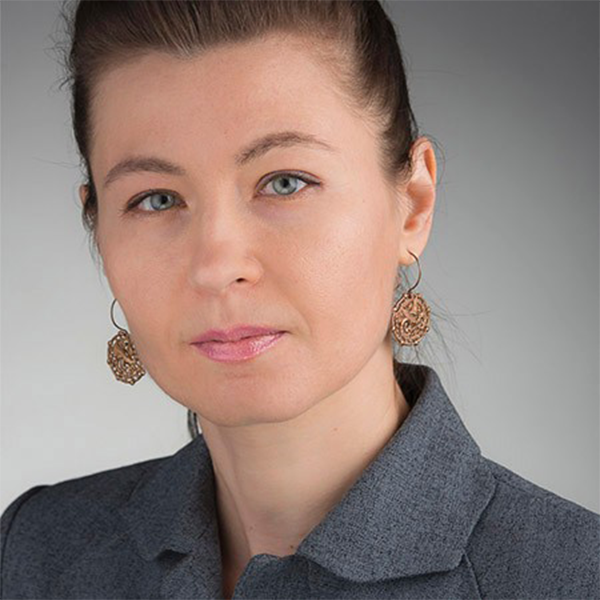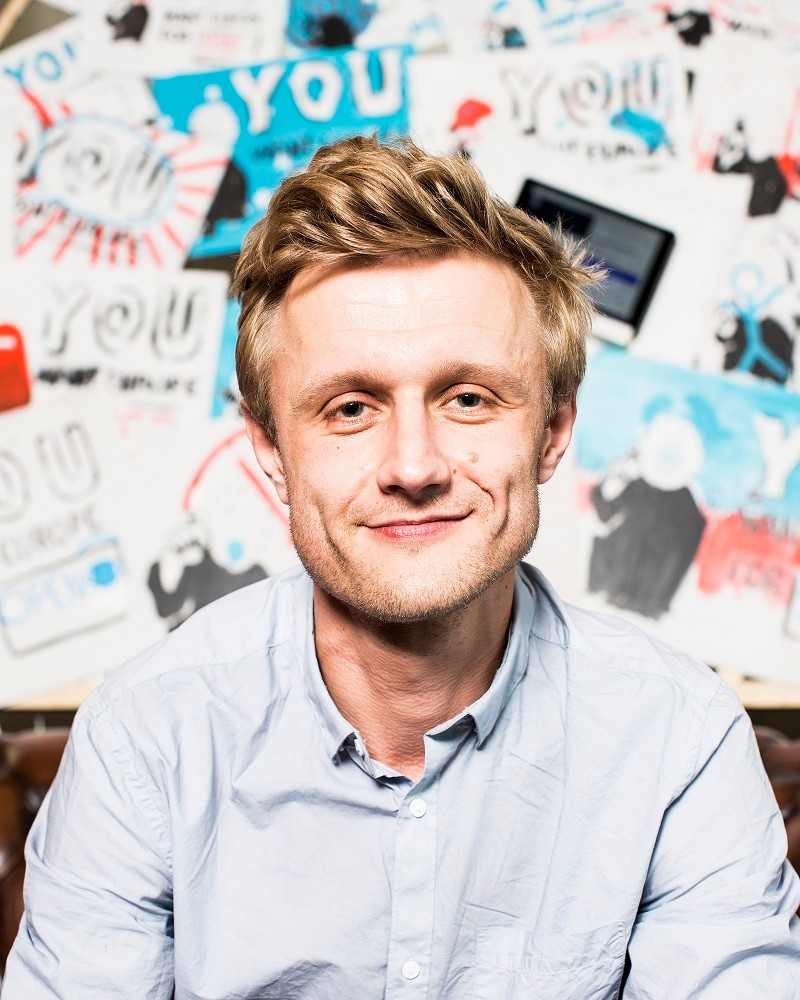
The Russia-Ukraine War and Media
2022, Media + Information, Democracy
A panel of international experts discussed how media has played a role in shaping public opinion and narratives in different ways. From the spectacle of terror, nuclear blackmail, oil nationalism and outright apathy, this discussion covered a range of topics from speakers in Ukraine, Canada, Europe and the US.
Online event

Moderator | Nicole Jackson
Nicole Jackson is Associate Professor of International Studies at SFU. Previously, she was Assistant Professor in the Department of Political and International Studies at The University of Warwick, UK. Her research interests lie at the intersection of foreign policy, domestic politics, and security studies. Her regional focus is the former Soviet space, primarily Russia. She has been conducting research in Russia and in post-Soviet Central Asia since 1994.

Svitlana Matviyenko
Svitlana Matviyenko is an assistant professor of critical media analysis in SFU's School of Communication. Her research and teaching are focused on information and cyberwar; political economy of information; media and environment; infrastructure studies; and STS. She writes about practices of resistance and mobilization; digital militarism; dis- and misinformation; Internet history; cybernetics; psychoanalysis; posthumanism; the Soviet and the post-Soviet techno-politics; and nuclear cultures, including the Chernobyl Zone of Exclusion. She is a co-editor of two collections, The Imaginary App (MIT Press, 2014) and Lacan and the Posthuman (Palgrave Macmillan, 2018). She is a co-author of Cyberwar and Revolution: Digital Subterfuge in Global Capitalism (Minnesota UP, 2019), a winner of the 2019 book award of the Science, Technology and Art in International Relations (STAIR) section of the International Studies Association and of the Canadian Communication Association's 2020 Gertrude J. Robinson book prize.

Kayla Hilstob
Kayla Hilstob is a PhD Candidate at SFU's School of Communication and a researcher on the Cyberwar Topologies research stream at the Digital Democracies Institute. Her research interests include political economy of communication, the militarization of media, and the impacts of artificial intelligence on both organized and precarious labour. Her dissertation is on nationalism, sovereignty and internet(s) infrastructure in Canada in the context of cyber conflict.

Vasyl Cherepanyn
Vasyl Cherepanyn (Ukraine, 1980) is Head of the Visual Culture Research Center (VCRC), an institution he cofounded in Kyiv in 2008 as a platform for collaboration among academic, artistic, and activist communities. He holds a PhD in philosophy (aesthetics) and has lectured at the National University of Kyiv-Mohyla Academy, European University Viadrina in Frankfurt (Oder), University of Helsinki, Free University of Berlin, Merz Akademie in Stuttgart, University of Vienna, Institute for Advanced Studies of the Political Critique in Warsaw, and University of Greifswald. He was a visiting fellow at the Institute for Human Sciences in Vienna in 2016. He coedited Guidebook of the Kyiv International (Medusa Books, 2018) and ’68 NOW (Archive Books, 2019), and curated The European International (Rijksakademie van beeldende kunsten, Amsterdam, 2018), Hybrid Peace (Stroom, The Hague, 2019), and Armed Democracy (2nd edition of Biennale Warszawa, 2022), among others. VCRC is the organizer of the Kyiv Biennial (The School of Kyiv, 2015; The Kyiv International, 2017; The Kyiv International—’68 NOW, 2018; Black Cloud, 2019; Allied, 2021) and a founding member of the East Europe Biennial Alliance. VCRC received the European Cultural Foundation Princess Margriet Award for Culture in 2015 and the Igor Zabel Award Grant for Culture and Theory in 2018.
Photo credit for Vasyl's photo: © Bram Belloni / Forum on European Culture

Andreas Umland
Andreas Umland is an analyst at the Stockholm Centre for Eastern European Studies (SCEEUS) at the Swedish Institute of International Affairs. Umland is based in Kyiv.
Andreas Umland is also an Associate Professor of Political Science at the National University of Kyiv-Mohyla Academy.
Umland holds a PhD in Politics from Cambridge, DrPhil in History as well Diploma in Politology from FU Berlin, MPhil in Russian Studies from Oxford, and MA in Political Science from Stanford (for full list see CV). Umland was a researcher at Stanford’s Hoover Institution as well as Harvard’s Weatherhead Center, and taught at the Ural State University in Yekaterinburg, St. Antony’s College Oxford, Shevchenko University of Kyiv, Catholic University of Eichstätt, and University of Jena. He is the editor of the ibidem Press book series “Soviet and Post-Soviet Politics and Society” and “Ukrainian Voices.”
He is a member of the boards of the International Association for Comparative Fascist Studies, and Boris Nemtsov Academic Center for the Study of Russia at Charles University of Prague.
- "The Canadian government’s response to foreign disinformation: Rhetoric, stated policy intentions, and practices," Nicole J. Jackson (2021) in International Journal, 76(4), 544–563.
- "The Russian invasion shows how digital technologies have become involved in all aspects of war," Katharina Niemeyer, Dominique Trudel, Heidi J. S. Tworek, Maria Silina and Svitlana Matviyenko in The Converation (March 28, 2022).
- "Nuclear Cyberwar: From Energy Colonialism to Energy Terrorism," Svitlana Matviyenko (2022) in e-flux Journal, issue #126.
- "Producing the Subject of Deportation. Filtration Processes during the Russia-Ukraine War," Daria Getmanova and Svitlana Matviyenko (2022) in Sociologica, 16(2), 239-252.
- "Event recap: The Russia-Ukraine War and Media" Carmel Dowling (2022).
- "Panel discusses role of media in Russia-Ukraine war" Pranjali J Mann, The Peak (Nov 8, 2022).
Our community guidelines are intended to ensure the safety of all guest speakers and event participants, and to foster honest, socially accountable dialogue at our events. Thank you for respecting these guidelines!
- Above all, there will be zero tolerance for those who promote violence or discrimination against others on the basis of race, ethnicity, national origin, sexual orientation, gender identity, religious affiliation, age, or disability. Anyone who incites harm towards other participants (whether through chat, video, audio or otherwise) will be removed at the discretion of our technical team and moderator.
- Don’t assume pronouns/gender/knowledge based on someone’s name or appearance. Please refer to people using the usernames and/or pronouns they provide.
- Take space, make space: share your perspective, and make space for other voices to be heard too. Recognize that we are all here to learn.






